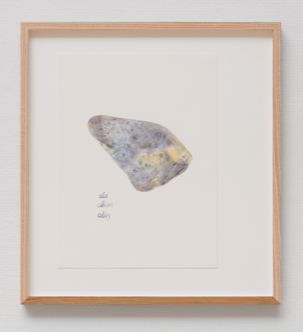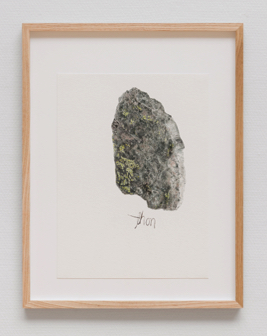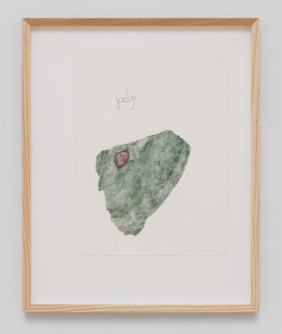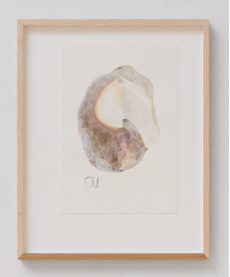



The five works in this series are portraits of found stones. They were created in connection to the performance work Soy Milk, which deals with language, gender and trans- ation.
Every stone was once part of a larger whole but they have now crystallized and detached themselves as unique individuals, detai- led and complex. Stones are witnesses from the prehistoric times that created them.
They are the product of unimaginably slow transformations in a time scale that transcends humanity. Sedimentary stones are formed from sediments, igneous stones are formed by volcanic magma, and metamorphic stones are sedimentary or igneous stones that have been chemically altered by pressure or heat. There is a resonance between these shifts and the shift that occurs in translation. Both the material body of the stone and the text go though a journey, becoming something new, and yet they carry with them some of their previous identities. At the same time, the act of portray- ing the stones is a sort of translation in its own way. The works include five examples of gender-inclusive pronouns that have been used in the English language as early as 1789 as a supplements to the binary he & she:
Xe
Water coulour on paper framed in light ash and dark oak. 51 x 46 cm, 2020.
Exhibited at Kunsthal Aarhus, 2020.
Ou
Water coulour on paper framed in light ash and dark oak. 51 x 48 cm, 2020.
Thon
Water coulour on paper framed in light ash and dark oak. 55,5 x 43 cm, 2020.
Ala
Water coulour on paper framed in light ash and dark oak. 55,5 x 55 cm, 2020.
Judy
Water coulour on paper framed in light ash and dark oak. 55,5 x 44 cm, 2020.
Photo by Mikkel Høgh Kaldal
Ala/alum/ alis, Thon, Ou, Xe/xem/xers and judy. In the works they appear as inquiries to the stones. By using these pronouns as the titles of the works, I want to address the stones as individuals who not only deserve a portrait, but also a place in the language.